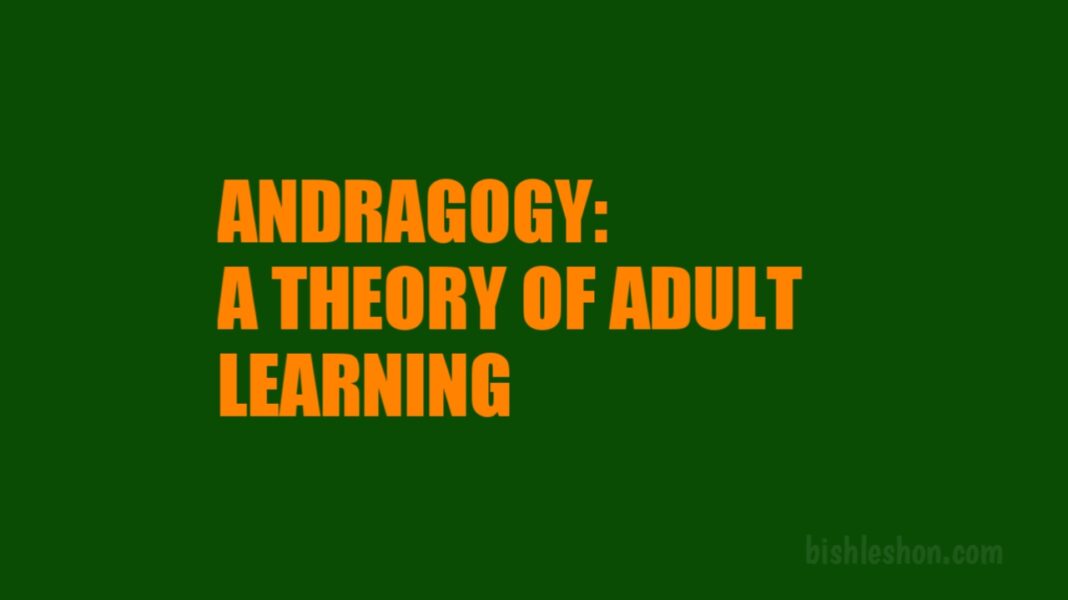Andragogy is an important concept in adult education, emphasizing the unique characteristics and needs of adult learners. Unlike pedagogy, which is focused on teaching children and young adults, andragogy recognizes that adult learners are self-directed, motivated, and have a wealth of experience and knowledge that can be incorporated into the learning process. This article will discuss the principles, teaching strategies, challenges and future of andragogy and how they can be applied in practice to create effective and engaging learning experiences for adult learners.
Table of contents
Definition of Andragogy
Andragogy is the art and science of teaching adults. It is a theoretical framework that emphasizes the unique characteristics and needs of adult learners, such as their self-directedness, prior knowledge and experience, and motivation to learn. The term “andragogy” was coined by Malcolm Knowles in the 1960s and has since become an important concept in the field of adult education.
Definition of Adult Learners
Adult learners, also known as andragogical learners, are individuals who are 18 years or older and are pursuing education or training. They may be returning to school after a hiatus, seeking to enhance their career prospects, or simply interested in learning for personal growth.
Adult learners often have busy lives, work full-time jobs, and may have family responsibilities. They bring a wealth of knowledge and experience to the learning process and may have different learning styles and preferences than younger learners. Adult learners are typically more self-directed and motivated than younger learners, and they require a different approach to teaching than traditional pedagogy, which is focused on teaching children and young adults.
Andragogical Principles
Andragogical principles provide a framework for effective teaching and learning for adult learners. These principles include:
- Adult learners need to be involved in the planning and evaluation of their learning.
- Adult learners’ experiences should be used as a foundation for new learning.
- Adult learners’ readiness to learn is related to the development of their social roles.
- Adult learners’ motivation to learn is based on internal factors, such as personal goals and interests.
- Adult learners’ learning is most effective when it is problem-centered and relevant to their life situations.
- Adult learners’ learning is affected by the climate of the learning situation.
Andragogical Teaching Strategies
Andragogical teaching strategies are designed to be more effective for adult learners. These strategies include:
- Active learning: Adult learners prefer to be active participants in their learning rather than passive receivers of information.
- Problem-based learning: Adult learners learn best when they are presented with real-world problems that require critical thinking and problem-solving.
- Experiential learning: Adult learners learn through experience and reflection on that experience.
- Collaborative learning: Adult learners learn through collaboration and sharing their experiences and knowledge with others.
- Self-directed learning: Adult learners take responsibility for their own learning and are actively involved in the learning process.
Challenges and Limitations of Andragogy
While andragogy has been a useful framework for adult learning, it is not without challenges and limitations. Some of these challenges and limitations include:
- The assumption that all adult learners have the same characteristics and needs may not be accurate.
- The approach may not be appropriate for learners with limited prior knowledge and experience in a particular subject.
- The emphasis on self-directed learning may not be suitable for all adult learners, particularly those who prefer a more structured learning environment.
- The implementation of andragogical principles may require significant changes to existing teaching practices, which may be challenging for some instructors.
- The use of andragogy may not be appropriate for all subject areas, particularly those that require a more structured approach to teaching and learning.
The Future of Andragogy
The future of andragogy is likely to involve further refinement and adaptation of the framework to meet the changing needs of adult learners. With the increasing importance of lifelong learning and the changing nature of work, it is essential to have effective teaching and learning strategies that meet the needs of adult learners. The use of technology and online learning may also play a more significant role in andragogical teaching and learning strategies.
Bibliography
- Knowles, M. S. (1980). The modern practice of adult education: From pedagogy to andragogy (Rev. ed.). New York: Cambridge Books.
- Merriam, S. B., Caffarella, R. S., & Baumgartner, L. M. (2007). Learning in adulthood: A comprehensive guide (3rd ed.). San Francisco: Jossey-Bass.
- Taylor, E. W. (2007). An update of transformative learning theory: A critical review of the empirical research (1999-2005). International Journal of Lifelong Education, 26(2), 173-191.
- Wang, V. C. X., Shannon, D. M., & Ross, M. E. (2013). Students’ characteristics, self-regulated learning, technology self-efficacy, and course outcomes in online learning. Distance Education



 For all latest articles, follow on Google News
For all latest articles, follow on Google News